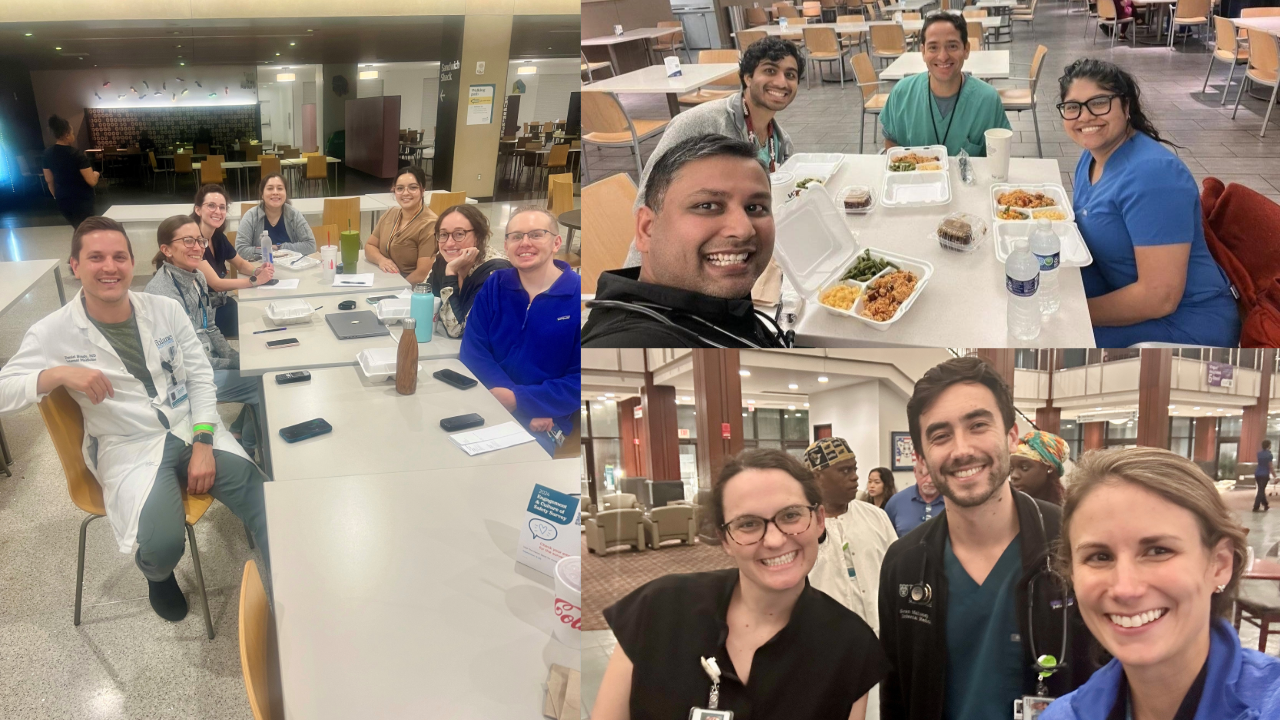Tulane teams help keep hospitals running during Hurricane Francine
As Francine turned into a hurricane and set its sights on southeast Louisiana, area hospitals enacted emergency plans. LCMC Health went into “Code Grey” lockdown mode, one of several code names that exist for different types of emergencies - each of which triggers a special protocol. For a “Code Grey” it signals an impending weather event, and includes canceling elective procedures, as well as closing many clinics and urgent care centers.
While many people prepared to shelter at home, Kristin Bateman, MD, Associate Program Director of Internal Medicine, packed a suitcase and pillow and headed to University Medical Center.
“I did Code Grey during Hurricane Ida as well,” said Bateman. “I feel like the Tulane Medicine world is this large family, and we take care of each other. It’s the same with our patients.”
Dr. Bateman was one of nearly 30 Tulane School of Medicine attending physicians, residents, and fellows who served on Code Grey teams during Hurricane Francine. Along with the UMC Tulane team, Tulane attendings and residents worked through the storm at East Jefferson General Hospital, Lakeside Hospital, Children’s Hospital New Orleans, the New Orleans VA Medical Center, and Ochsner.
Working during a hurricane comes with extra challenges. Emergency cases are still coming into the ER, but patients cleared for discharge might be unable to leave.
“Some patients didn’t have a safe place to go or a way to get medicines,” said Bateman. “How can I, as a human being, let alone a physician, discharge you to a shelter where I can’t guarantee a spot? At the same time, you’re balancing a very busy hospital.”
Sarah Bond, MD, a chief resident of Internal Medicine, volunteered for the Code Grey shift at EJGH.
“I’m a New Orleans native,” said Bond. “My personal reason for volunteering is to take care of my own community and help. What makes it even more amazing is that many of our Tulane residents aren’t local, and this was their first hurricane. But they were willing to step up and come in, even though they didn’t know what they were getting into. It reminds you of how great a community Tulane is.”
Hospitals operate on skeleton crews during hurricanes, but that still requires a team of nurses, physical therapists, food service personnel, maintenance workers, and other support staff working alongside physicians.
“It’s truly a full hospital effort,” said Bond. “The cafeteria staff was working so hard to get everyone fed, and the maintenance staff was coming quickly to fix little leaks that were popping up. Not many jobs get to say they have to come in during a hurricane and take care of other people. I’m just thankful for the people I work with and proud to be part of the Tulane community.”

